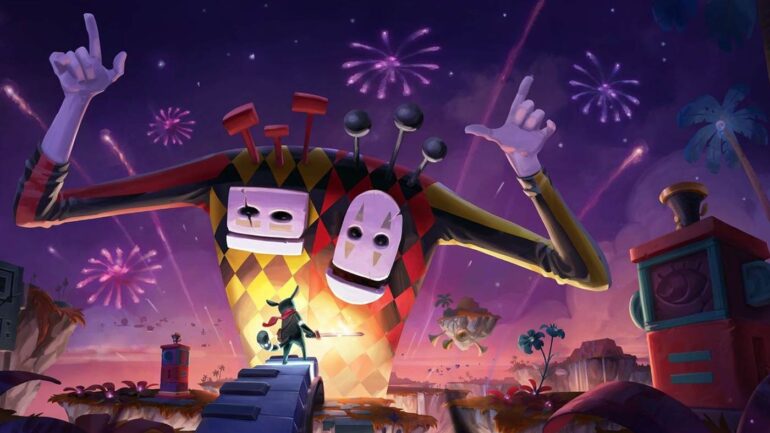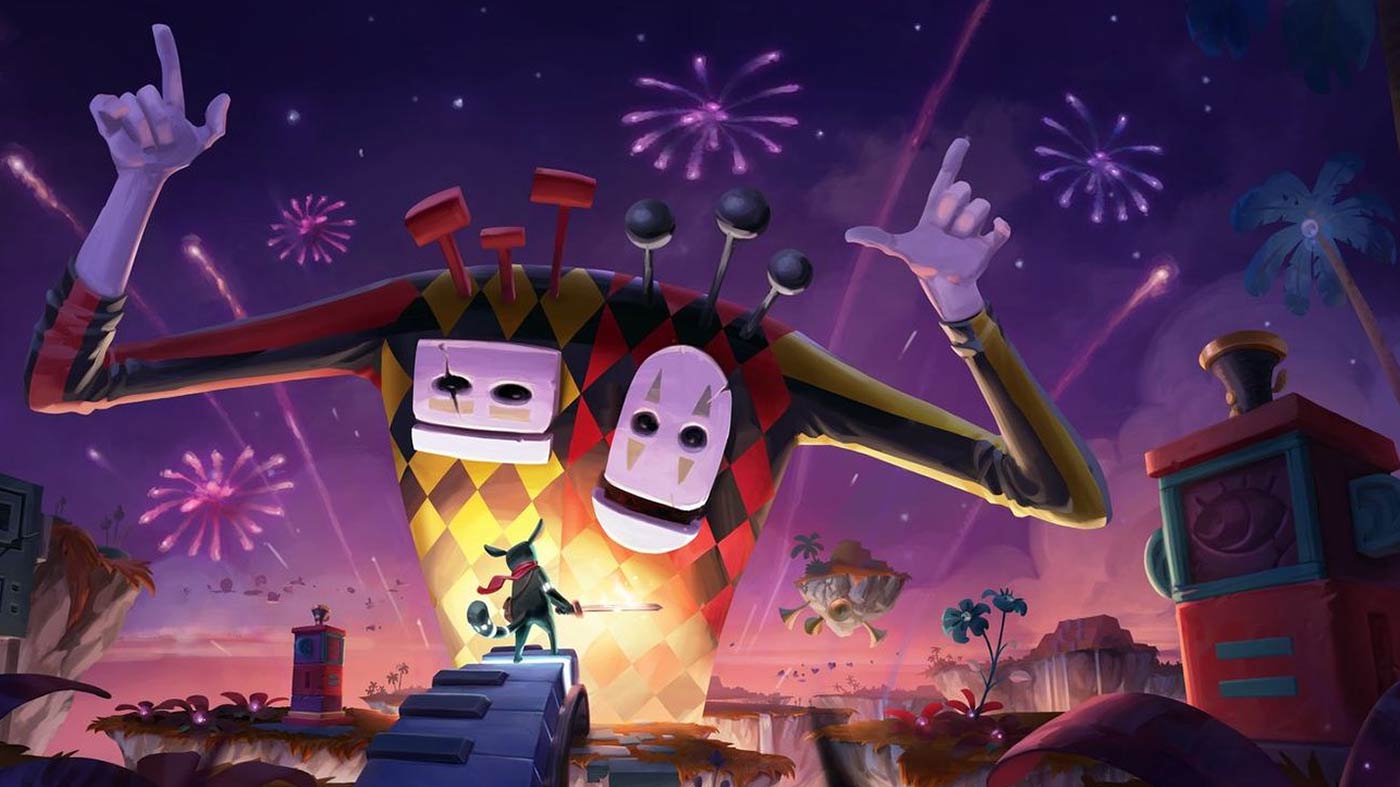Having not indulged in the first Figment game, to which this is a sequel, Creed Valley feels very much like another relapse within a disturbed mind. It tells its own contained story, complete with teaching moments. It does feel more like Dreamworks than Disney in its ability to deliver characters and dialogue to help stitch the gorgeous, hand painted world together, but it’s ultimately tough to fault this little indie that could.
You play as an elvish lad named Dusty, the embodiment of courage itself within the mind palace that Figment’s story takes place in. With Piper, his avian aid, he’s tasked with achieving peace inside of a headspace still plagued by nightmares. A day inside the mind is realised creatively, not only do you rhythmically dispatch nightmares but you wade between open-minded and closed-mindedness to converse with anthropomorphic, and quite frankly shaggy to an adorable degree, Opinions—which range from some profoundly important things like self-help to inane topics such as how to leave the toilet seat.
Which is down, by the way.
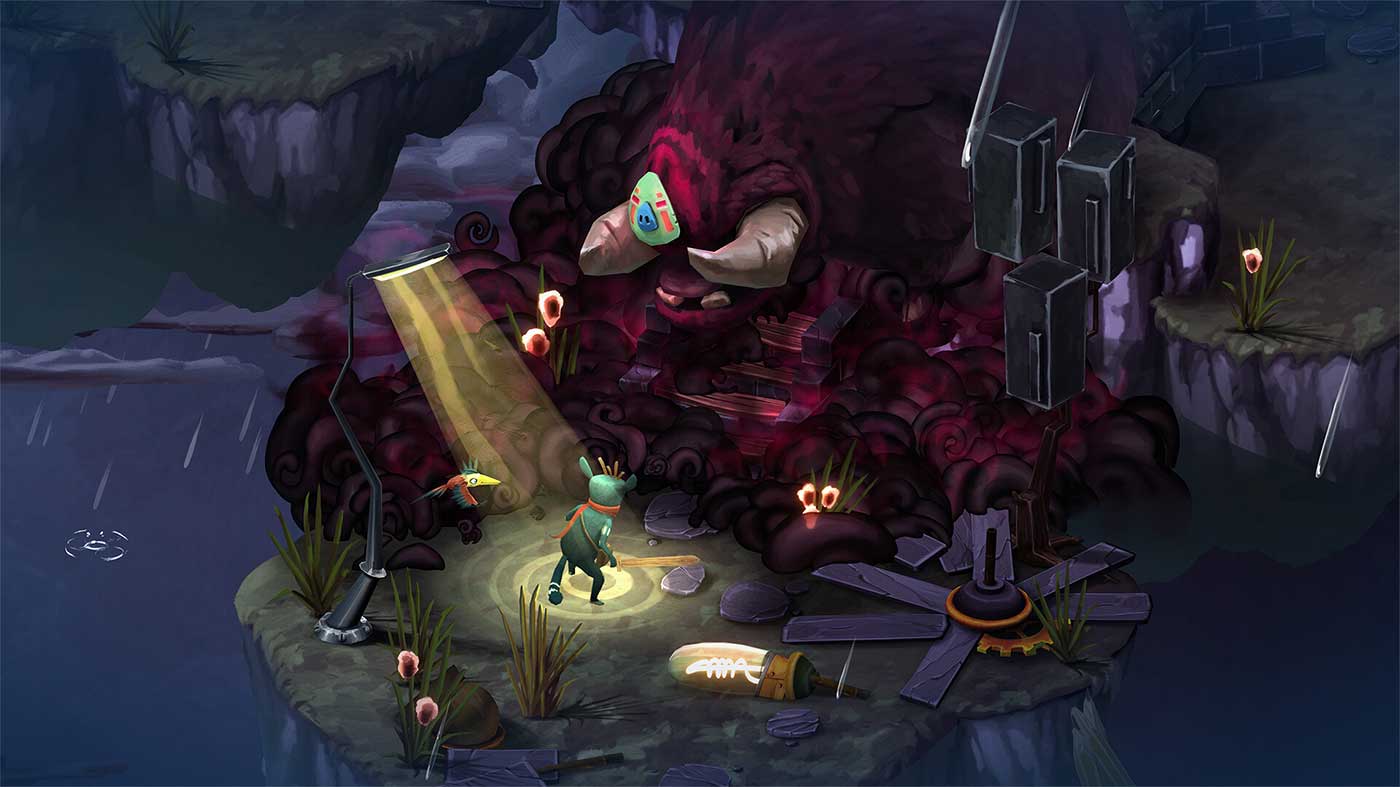
There’s a meta story that exists beyond Dusty’s perception, as the nightmares he wrestles with serve as manifestations of external stresses that concern our hero’s owner. It’s not exactly Inside Out in terms of delivery, and it’s kind of just there—it’s doled out in between major story beats and in conjunction with the game’s sole collectible.
Figment plays kind of like a game jam version of Bastion had it been mashed together with the concepts behind Psychonauts. It’s ultimately an isometric action game that incorporates environmental problem-solving, a small amount of detective work, and some humour to break up the action.
That’s where the game does experience a few hang-ups. While it’s apt for what it is, Figment’s combat is rather one note. Where a game like Bastion has many weapons on top of many systems to give the gameplay a bit of heft, Figment arms you with a lone wooden sword that can attack lightly, slightly less lightly following a roll, or deflect comically drawn rockets that fire from the periphery of the mind’s defences.
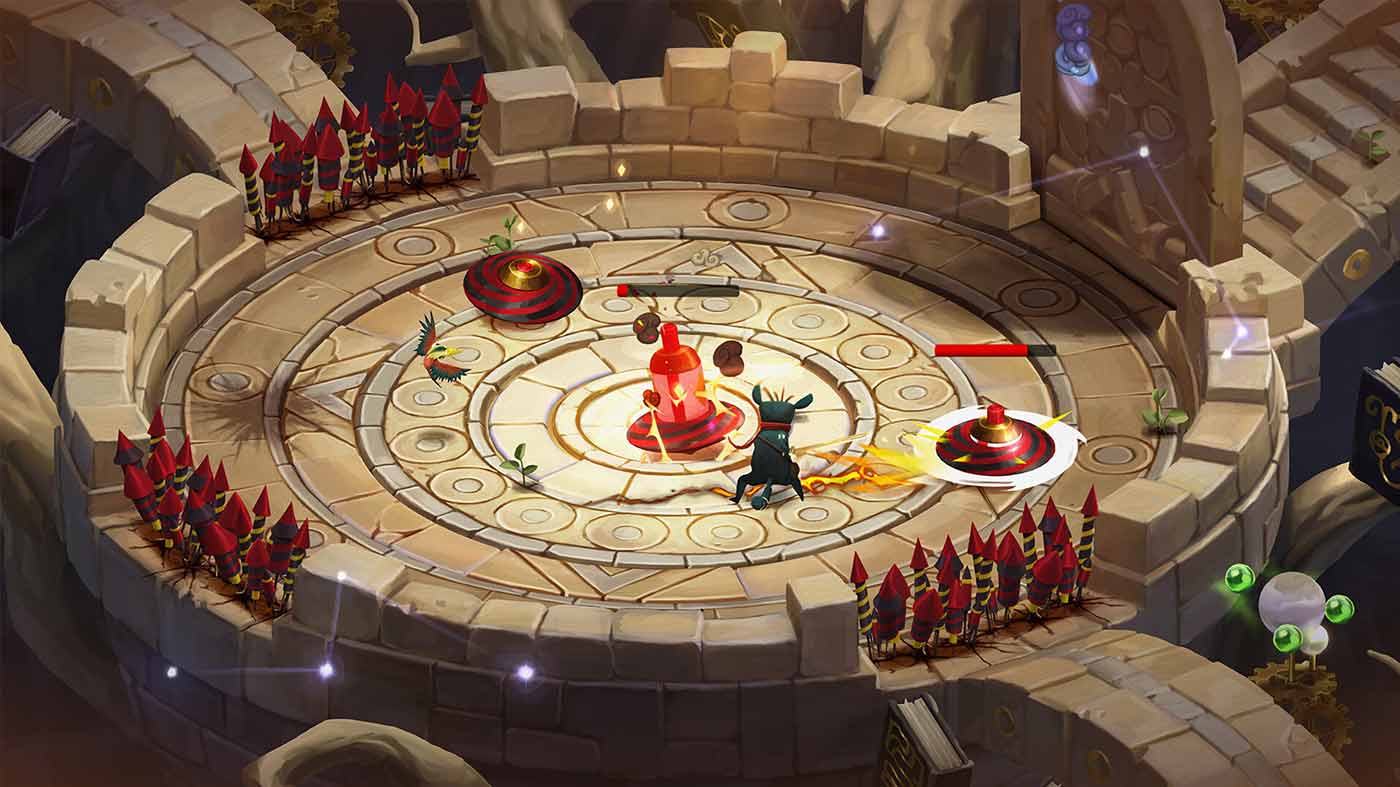
It is simple, which will suit its intended audience, which I’m guessing is younger teens. But if you’re hoping for a rollicking action game with meat on the bone, this one is certainly style being favoured over substance.
Figment’s marketing certainly promised a musical adventure and I feel like the game does ace this in a few key areas. Music is simply present everywhere in different forms, whether it’s a bridge made of piano ivories or boss fights dressed up as full blown musical numbers. Figment is certainly a theatrical game, and I couldn’t wipe the grin off of my face during any of the handful of original compositions.
As far as ads go, the enemy variety is rather sparse too. Reflecting now, I can recall perhaps three or four enemies that’ll aim to cause you grief. While this’d spell trouble in a twelve hour game, Figment’s brevity serves it well here, ensuring that neither its limited mechanics and cast of villains overstay their welcome. If nothing else, Figment delivers a brief adventure fitting of its budget price.
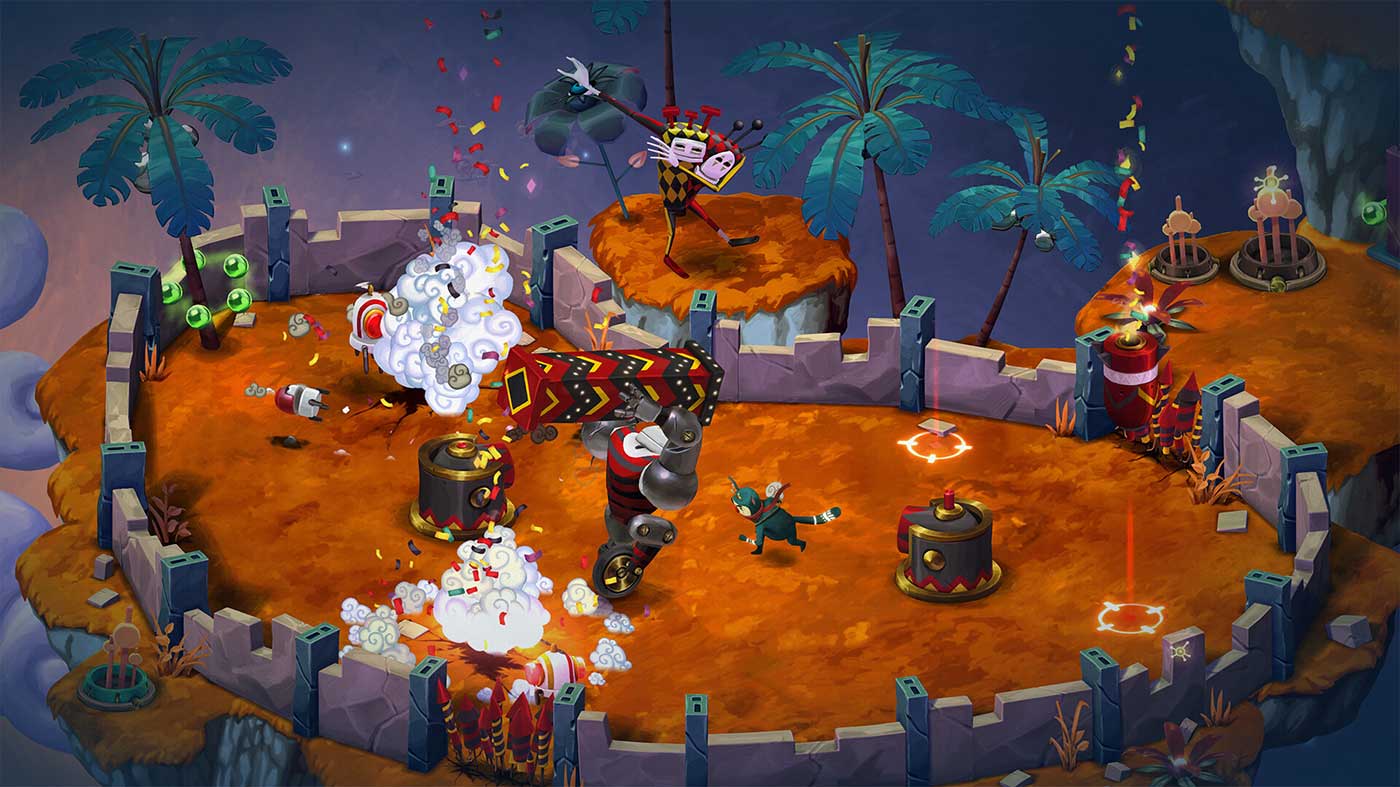
The game’s art direction is one of its strongest points, without doubt. While mindset, which as I established there’s two to hop between, can guarantee varying moods, there’s a lovely assortment of colours this game leans on to deliver its oil paint on canvas aesthetic. I actually adored the imperfections too, especially the unevenly dried globs of paint. I feel like it has an almost rushed look that, in tandem with a particular scenic vista near the endgame, speaks to the inability of Dusty’s surrogate to slow down enough to smell the roses and ultimately embrace joy.
I encountered only one game-halting bug in my handful of hours, but fortunately due to the rather short chapters, I was simply able to restart and quickly catch up. The game performed well otherwise, save for a few moments of slow down when one of the bigger skirmishes took place.
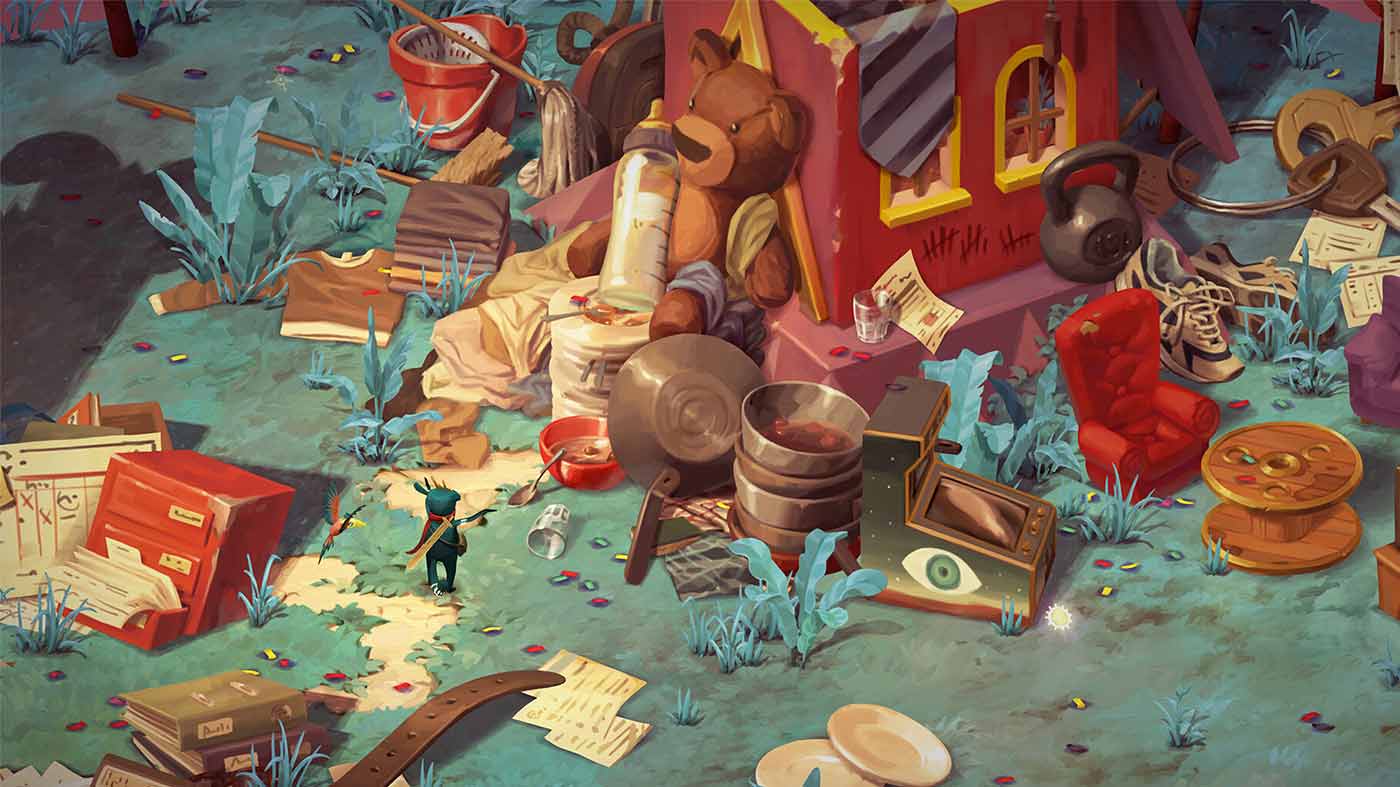
Figment 2: Creed Valley is a quaint game that’ll warm a lot of hearts. There’s nothing it does particularly wrong, in fact it’s quite capable in all facets of what a game can be. It’s simply a case of where less isn’t more, it’s just less. The combat is fun, but one-note and there aren’t enough enemy types to warrant strategic thought. Fortunately, the moxie of Dusty, the gleeful exuberance of the world itself, and the big showman-like show tunes from the roided-out baddies would make our Hugh blush.
It’s a fun romp, you’ve just gotta put your mind to it.


